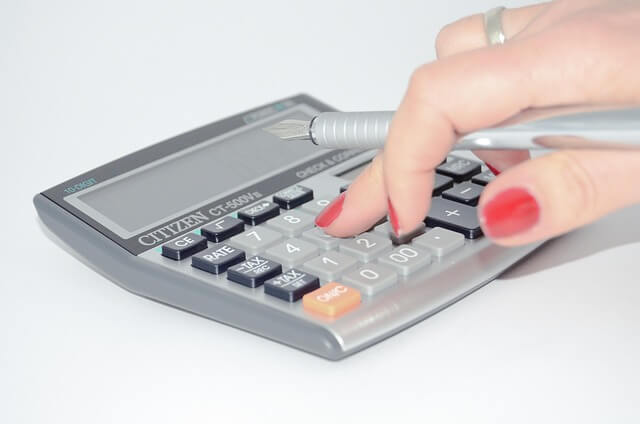
Photo By: PIXABAY
Table of Contents
Introduction:
Math calculators have transformed how we solve problems, making complex calculations quicker and more accurate. From basic arithmetic to advanced engineering equations, the right calculator can save time, improve precision, and enhance problem-solving skills.
In this guide, we’ll cover:
- The history and evolution of calculators
- Different types of math calculators
- How to choose the best one for your needs
- Real-world applications in education, business, and science
- Common mistakes to avoid when using calculators
- The future of smart and AI-powered calculators
If you're a student, engineer, business professional, or just someone who loves math, this guide will help you make the best use of calculators.
A Brief History of Math Calculators
1.1 Ancient Calculation Tools
Manual counting instruments are mostly remembered before the advent of calculators made by humans:
- Abacus: dating as far back as 3000 BC, one of the oldest counting devices found in China and Mesopotamia.
- Counting Boards: were used for trade and tax purposes in ancient Rome.
- Napier's Bone (1617): is a manual calculating device for multiplication and division.
1.2 The Mechanical Calculator Era
- Starting about 1642, Blaise Pascal completed the first of his machines for adding and subtracting, mainly for multiplication and division. In 1673,
- Leibniz modified his calculator, and greater improvements ensued.
- Mass production of calculators began with the arithmometer, which became commercially popular during the 1820s.
1.3 The Rise of Digital Calculators
- 1960s: IBM and Texas Instruments introduced the first electronic calculators.
- 1970s-1980s: Portable pocket calculators became common for students and professionals.
- 1990s: Graphing calculators like the TI-84 Plus revolutionized education.
1.4 Modern Smart and AI-Powered Calculators
- 2000s-Present: Online tools like Wolfram Alpha, Photomath, and Desmos solve equations instantly.
- Future: Augmented reality (AR) and AI-powered math assistants will make calculations even smarter.
2. Types of Math Calculators and Their Uses
2.1 Basic Calculators
- Operations: add, sub, mul, div
- Good for: College, students everyday math home/animations[size yt] [/size]<= recommended size Moviegram tale
- Sample: Casio SL-300SV; Sharp EL233SB.
2.2 Scientific Calculators
- Functions-Includes Trigonometry, Logarithms, Exponents, and Probability
- Suitable For: Students in high school and college, engineers.
- Some Good Calculators: Casio fx-991EX TI‑30X IIS
2.3 Graphing Calculators
- Features: Graph plotting, algebra, calculus & statistics.
- Ideal for: Students interested in science, technology, engineering and math branches (STEM), Data Analysts/Engineers.
- Example: TI-84 Plus, Casio fx-CG50
2.4 Financial Calculators
- Features: Interest rates, loan calculations, and business analysis
- Ideal For: Working Professionals, Accountants & Financial Analysts.
- Read: HP 12C, TI BA II Plus.
2.5 Online & AI-Powered Calculators
- Characteristics: step-by-step solutions, algebra, calculus and data analysis.
- Suitable for: Students, professionals, researchers.
- Examples: Wolfram Alpha, Desmos, Symbolab.
3. How To Choose The Right Calculator
Discover How To Earn Money By Creating App Calculator
3.1 Identify Your Needs
- Basic Math? → Get a standard calculator.
- Algebra & Trigonometry? → Select Scientific
- Calculator Graphing & Statistics. → Buy a graphing calculator.
- Finance & Accounting? → Use a financial calculator.
3.2 Key Features to Consider
- Display: High-resolution screens are better for graphing and equations.
- Battery Life: Some models last years, while others need frequent charging.
- Programmability: Useful for engineering and coding applications.
3.3 Best Models Based on Use
| Use Case | Best Calculator |
|---|
| High School & College | Casio fx-991EX, TI-30X IIS |
| Engineering & Data Science | TI-89 Titanium, HP Prime |
| Finance & Business | HP 12C, TI BA II Plus |
4. Real-World Applications of Math Calculators
4.1 Education & Learning
- Helps students visualize and understand complex equations.
- AI-based calculators provide step-by-step solutions.
4.2 Business & Finance
- Used for profit calculations, stock market analysis, and financial projections.
4.3 Engineering & Science
- Supports data modeling, simulations, and scientific calculations.
4.4 Everyday Life
- Used for budgeting, tax calculations, travel expenses, and calorie tracking.
5. The Future of Math Calculators
5.1 AI & Machine Learning Integration
- Smart calculators will predict equations and provide real-time tutoring.
5.2 Augmented Reality (AR) Calculators
- Interactive problem-solving using 3D models.
5.3 Voice-Activated Calculators
- AI-powered assistants like Siri and Google Assistant will perform advanced calculations.
6. Common Mistakes When Using Calculators
6.1 Over-Reliance on Calculators
- Weakens mental math skills if used too often.
6.2 Input Errors
- A simple typo can lead to incorrect results.
6.3 Mode Settings Issues
- Degree vs. Radian Mode: A common mistake in trigonometry calculations.
7. Best Math Calculators For Competitive Exams
| Exam | Recommended Calculator |
|---|---|
| SAT, ACT, GRE | TI-84 Plus, Casio fx-9750GII |
| Engineering Entrance | Casio fx-991EX, TI-Nspire CX |
| CFA, CPA (Finance) | HP 12C, TI BA II Plus |
Conclusion
Math calculators have changed the atmosphere of how we calculate in every aspect, from our education up to business and engineering. Which one is right for you depends on what you need, from simple arithmetic to advanced graphing and financial calculations.
Knowing what the various kinds are, their utilities, and best practices will result in a greater level of accuracy as well as speed which is critical to being able fleece through your real problem.
